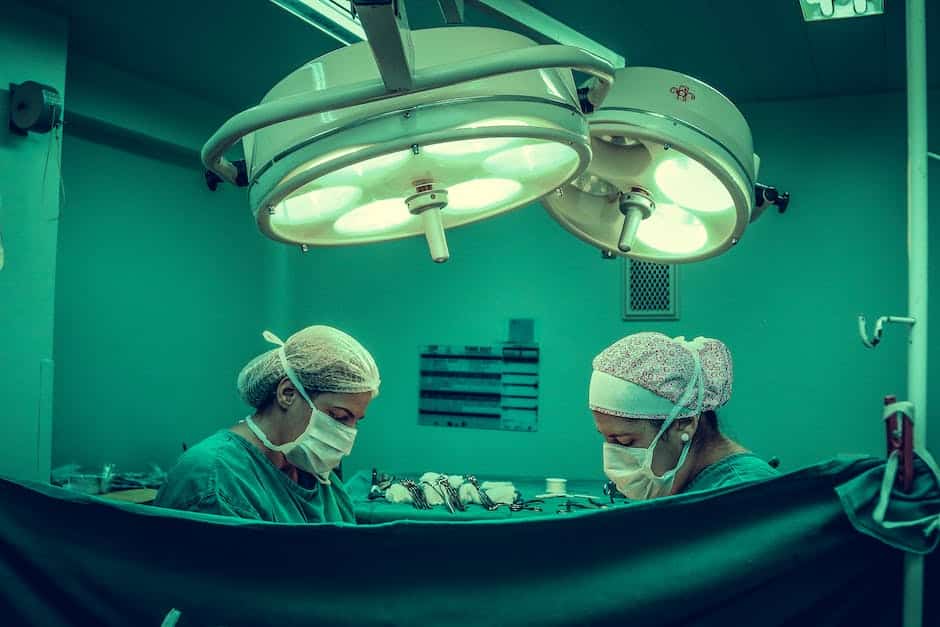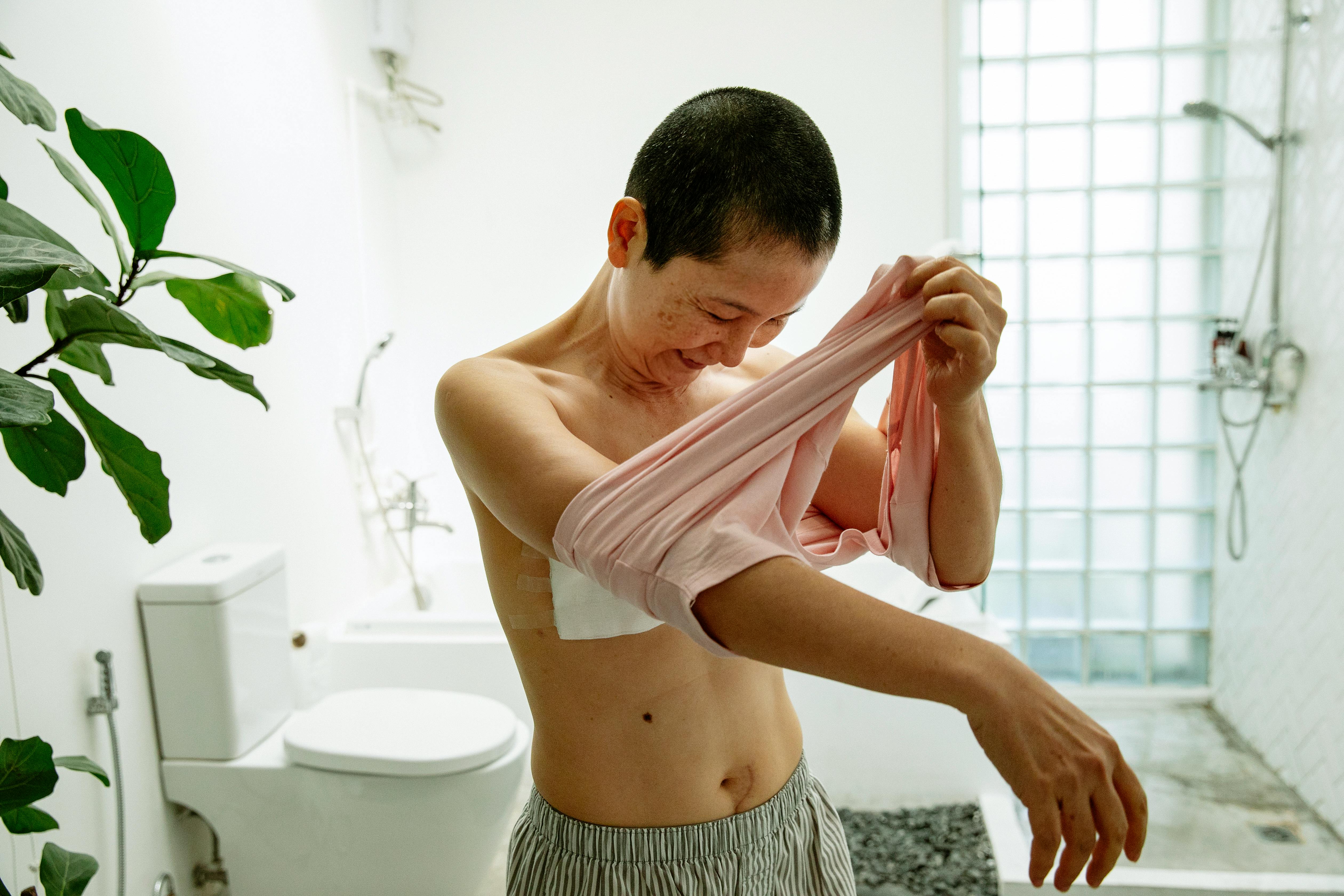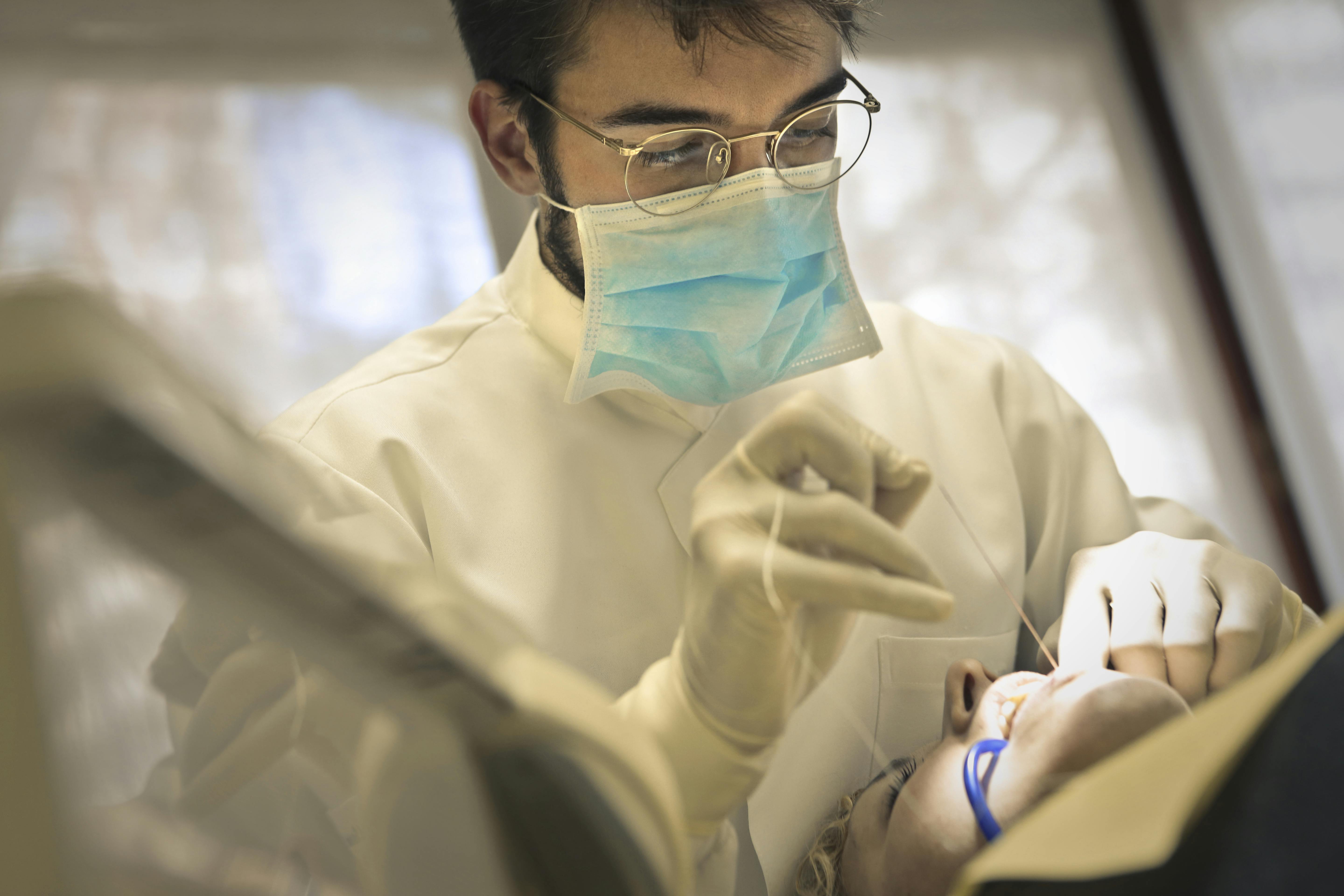What To Wear To Surgery

When it comes to having surgery, you may be more focused on the procedure itself, but what you wear can make a difference too. Knowing what to wear to surgery is important for comfort, safety and following medical protocols. It’s best to check with your doctor or hospital ahead of time to make sure you have the right clothing for your procedure. Here are some tips on what to wear to surgery.When preparing to go to surgery, it is important to wear comfortable, loose-fitting clothing that can be easily removed. Wearing items such as sweatpants or a loose skirt with a drawstring waist, and a shirt or blouse with buttons or snaps down the front are ideal. It is also important to wear shoes that can easily be removed, such as slip-on shoes or sandals. Avoid wearing jewelry and other accessories as they may interfere with the procedure.
What Clothes To Wear During Surgery
When undergoing surgery, it is important to wear the right clothes. While the surgeon may tell you what to wear, it is important to plan ahead in order to be comfortable and safe. It is usually best to wear loose, comfortable clothing that does not constrict or bind in any way. It should also be easy to remove and put back on quickly. Avoid wearing any metal objects such as jewelry or watches that could interfere with medical equipment. Additionally, it may be best to avoid wearing clothing with zippers or other fasteners that can get caught on medical equipment or cause discomfort during surgery.
It is also important to consider how your clothing will fit over any bandages or casts after surgery. Loose-fitting clothing will make it easier for you to move around without feeling restricted. In some cases, you may need a hospital gown during surgery so that the medical team can access certain areas of your body easily and quickly. If you are instructed to wear a hospital gown, you should bring a robe and some slippers as well in order to stay warm and comfortable during your procedure.
Although it can be difficult to choose the right clothes for surgery, planning ahead will help ensure that your procedure goes smoothly and safely. Be sure to listen carefully to any instructions from your surgeon regarding what type of clothing you should wear during your procedure so that you can be as comfortable as possible during the process.
Comfortable Clothing for Surgery
Having surgery can be a stressful experience, but wearing the right clothing can help make the procedure more comfortable. When preparing for surgery, it is important to choose clothes that will be comfortable when lying down and provide easy access for medical personnel. It is best to wear loose-fitting clothes that can be removed easily, such as button-down shirts or blouses, elastic waist pants, and slip-on shoes. Avoid wearing tight clothing that may restrict movement or limit air flow. Additionally, it is recommended to wear layers so that you can adjust your temperature throughout the procedure.
When deciding what to wear for surgery, it is also important to consider any special instructions given by your doctor or medical team. Some surgeries may require patients to wear a hospital gown and other attire provided by the facility. For those who do bring their own clothing, it is important to consider fabrics that are easy to clean and comfortable against the skin. Cotton fabrics are ideal as they are breathable and absorbent. It is also best to leave jewelry at home as metal objects may interfere with medical equipment during the operation.
Finally, patients should bring a change of clothes for after the procedure so they can return home comfortably and without having to worry about changing back into their original garments while still in the hospital or clinic. The clothing should be loose fitting and made of breathable fabric such as cotton. It is also best if patients bring a sweater or light jacket in case of air conditioning in the facility during their recovery period after surgery.
Overall, choosing comfortable clothing for surgery can help make the experience more pleasant and provide an added layer of comfort during recovery time. Wearing soft fabrics that are easy to remove and have adequate airflow will ensure that you remain comfortable throughout the entire procedure. Be sure to follow your doctor’s instructions when selecting clothing for your surgical procedure so that you can prepare appropriately and feel relaxed during recovery time.
Appropriate Clothing For Surgery
When preparing for a surgical procedure, it is important to wear the appropriate clothing. This clothing should be made of a breathable material, such as cotton, and should be loose and comfortable. It is also important to avoid wearing any jewelry or metal items, such as belts or watches, as these can interfere with the surgery. Additionally, it is important to remove any contact lenses and glasses prior to the procedure. Finally, it is advisable to wear shoes that can easily be taken off and put back on in case of an emergency. It is also recommended that patients bring an extra set of clothing with them in case they need to change after the procedure. By following these guidelines, patients can ensure they are properly dressed for their surgery.
Loose Fitting Clothing For Surgery
When preparing for surgery, it is important to wear loose fitting clothing that is comfortable and allows for easy movement. Loose fitting clothing should not be restrictive, as this can impede the doctor’s ability to properly perform the surgery. It is also important that the clothing not be too tight, as this can cause discomfort and may interfere with the doctor’s movements during surgery. The clothing should also allow for easy access to the surgical site, so that the doctor can easily access it during the procedure. Additionally, loose fitting clothing should be breathable and allow for air circulation so that the patient does not become overheated during surgery. It is also important to avoid wearing any jewelry or accessories that could interfere with medical equipment or get in the way of doctors performing their procedures. Wearing loose fitting clothing will help ensure a successful surgery and patient safety during the process.
It is important to note that some surgeries may require specific types of clothing in order to properly perform a procedure or prevent infection, such as wearing a gown or cap when entering an operating room. In these cases, it is important to follow your doctor’s instructions carefully in order to ensure your safety and successful outcome from your surgery. Additionally, if you are having any type of invasive procedure done, it is best to wear clothes without zippers or buttons that could potentially get caught on medical equipment or irritate the skin during a procedure.
Overall, wearing loose fitting clothing for surgery is an important part of ensuring a successful outcome from any type of medical procedure. Loose fitting clothes allow for easy movement while helping prevent irritation and infection from occurring due to restricted movement or tight fabrics against skin. Additionally, they allow for easy access to surgical sites and help keep you cool during long procedures by allowing air circulation around your body. Following these guidelines will help ensure a safe and successful outcome from your upcoming surgery!

Wearing Shoes During Surgery
It is important for patients to wear the proper footwear during surgery. The right type of shoe can help to protect the feet from the risks associated with surgery and ensure a comfortable experience. Before undergoing any surgical procedure, it is important to consult with your doctor to determine which type of shoes are best for your particular situation. Depending on the type of surgery, different types of shoes may be required.
One important factor to consider when selecting shoes for surgery is their level of comfort and support. Shoes should provide adequate cushioning and support in order to reduce pressure on the feet during the procedure. In addition, they should be lightweight and breathable so that they do not cause excessive sweating or discomfort during long procedures. Comfort is especially important when undergoing foot-related surgeries such as bunion surgery or ankle reconstruction.
Another consideration when selecting shoes for surgery is their ability to protect the feet from potential hazards such as sharp objects or hot liquids that may be present in the operating room. Additionally, it is important to make sure that the shoes fit snugly so that they do not slip off during movement or become a tripping hazard during recovery periods.
The most common types of shoes used for surgery include closed-toe sneakers, sandals, and slippers. Sneakers provide good cushioning and support while protecting against any sharp objects in the area. Sandals are often preferred due to their breathability and lightweight design while slippers provide extra warmth if needed. It is also important to note that open-toed shoes are generally not recommended in order to prevent infection or contamination in an operating room environment.
In conclusion, wearing proper footwear during surgery can help ensure a safe and comfortable experience for both patient and surgeon alike. When selecting shoes for surgery, it is important to consider factors such as comfort level, weight, breathability, protection from hazards, fitment, and whether open-toed options are appropriate or not. By taking all these factors into account when selecting footwear prior to a procedure, patients can rest assured knowing they have taken all necessary precautions before entering into an operating room situation.
Hygiene Considerations Before Surgery
It is important to maintain good hygiene before any surgery. This includes washing your hands frequently, taking a shower or bath the day before surgery, and wearing clean clothing. Additionally, it is important to keep your nails trimmed and hair clean. It is also recommended that you wear loose-fitting clothing to make it easier for the medical team to perform their duties, and avoid wearing any jewelry or make-up. In some cases, it may also be advisable to remove any body piercings prior to your procedure. Finally, it is important to use an antiseptic mouthwash prior to any oral surgery.
It is also important for patients to follow any dietary instructions provided by their doctor prior to surgery. This will help reduce the risk of complications during the procedure. Additionally, it is important that you avoid smoking and drinking alcohol for at least 24 hours before the operation. Smoking can cause a decrease in oxygen levels in the blood which can increase the risk of complications during surgery.
Finally, patients should discuss with their doctor any medications they are currently taking as some medications may need to be stopped or adjusted prior to surgery. Additionally, patients should inform their doctor of any allergies or medical conditions they may have as these can affect how the procedure is performed and what type of anesthesia will be used. Following these guidelines will help ensure that your surgery goes smoothly without any unexpected complications.
Jewellery To Remove Before Surgery
Before any surgery, it is important to remove all jewellery. This includes rings, necklaces, bracelets, and watches. If the jewellery cannot be removed safely, then it should be taped down to the body or covered with a protective barrier such as sterile gauze. Items such as piercings should also be removed before surgery. Removing jewellery and other items before surgery helps reduce the risk of infection and other complications during the procedure.
When preparing for surgery, patients should take off all jewellery at home to minimize contact with potential contaminants in the hospital or clinic environment. Jewellery can also interfere with medical equipment used during the procedure or cause discomfort during recovery. It is particularly important to remove any jewellery that contains metal as it can interfere with imaging scans or electrocautery devices used during surgery.
Patients should make sure to tell their doctor about any body piercings they have so that the medical team can take appropriate precautions when needed. Additionally, any jewellery that is difficult to remove or cannot be taken off for certain reasons should be brought into the hospital so that doctors are aware of it before they begin the operation.
In conclusion, removing all jewellery before surgery helps ensure a safe and successful procedure. All patients should make sure to take off all their jewellery at home and inform their doctor about any body piercings they have before undergoing any operation.

